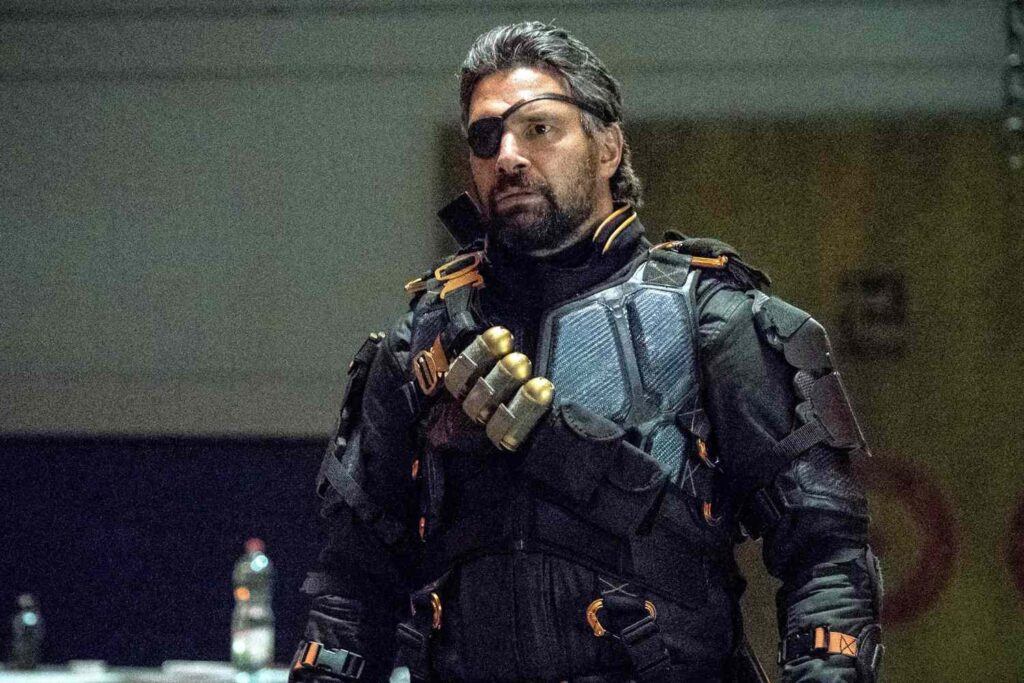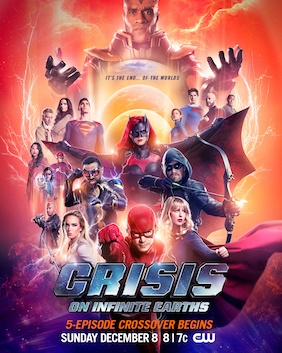Thank you all for taking the time out of your day to attend today’s ceremony. We are gathered to celebrate the long and storied life of one of our constant companions in the media landscape: the CW over the last two decades.
Of course, the CW has gone by many monikers and provided a veritable treasure trove of content throughout its time. Some of the older audience members will recall a time of the WB and UPN that existed as competitors before eventually merging into the CW that we know today after several exchanges of iconic franchises such as Buffy the Vampire Slayer and Smallville. And in many ways, those two franchises were emblematic of what the CW would commonly be known by.
The Tumblr historians, the sects of post-2000 fandom, have a particular conception of the union of the two networks into the CW looked like. Said conception will likely confuse future anthropologists, and that’s the one I would like to talk about.
And so, we begin this eulogy by discussing perhaps the most iconic franchise of the CW which originally started on the WB: Supernatural.
Clocking in at 327 episodes over 15 seasons, Supernatural holds the distinction of being the longest running live-action fantasy series in the US. This is a baffling fact given that this show had a very clearly defined myth arc that ran from Season 1 to Season 5. However, due to the inexplicable success, the show continued on for 10 more seasons and locked Jensen Ackles and Jared Padalecki into flannel wearing brothers who traveled the US in an Impala.
A staggering simple premise, the show worked largely due to the chemistry between the leads and a moderately innovative look into urban fantasy and horror. The show would go through several evolutions including the 2007-2008 Writer Strike that caused Eric Kripke to pivot more heavily into Christian mythos and bring in Misha Collins as the now equally iconic Castiel, who would become a companion to the Winchester brothers. After one Apocalypse deferred in Season 5, the CW refused to let the show die. Thus, this opened a revolving door of life and death for the brothers as they faced new and weirder threats and an expanding family tree. This went on for fifteen seasons, 300+ episodes of contractual nonsense, PoC and women getting fridged at unfortunate intervals, all culminating in moments where Castiel gets cast to the fan-dubbed “Super Hell” after confessing his love for Dean, and Dean dying the most undignified death ever in the finale.
But there is a reason why Sam and Dean captured the imagination of the masses. It was a meditation on Americana and mythology, a small injection of magic into the mundane world and one that had a vast supporting cast (that admittedly existed solely to give the audience someone to love and threaten their impending death repeatedly). The core of the brothers also proved to be the central thesis to the show’s success as various spin-offs were attempted and none made it to full production. Even the prequel, Winchesters barely managed to survive a season. And the success also proved to be quite the stranglehold on Jensen and Jared who would attempt to star in two different horror franchise revival movies only to return to the CW to continue the sprawling epic of the Winchester legacy as Kansas’s “Carry on My Wayward Son” plays aggressively as seasons recap.
Supernatural served as a cornerstone to CW programming and its end marked the first of many fallen pillars that would soon crumble.
Among these pillars were the shows of the Arrowverse. Smallville had proven that there was an audience for long running superhero stories, and Greg Berlanti, Marc Guggenheim, and many more would capitalize on this with the dark and gritty reimagining of the Green Arrow with the aptly titled Arrow. With its classic split narrative that detailed Oliver Queen’s time on a mysterious island and his return to Starling City (which would eventually get renamed to Star City in story), the show itself proved to be a fun jaunt through the DC mythos with Stephen Amell at the helm. Until season 2 Manu Bennett’s Slade Wilson got to take the stage culminating in one of the most hype seasons of TV that stood head and shoulders above other superhero adaptations (at least for the time frame). Of course, success came at a cost and the Arrowverse expansion meant that writers from Arrow were moving onto the Flash, and the show never really recovered during the rest of its eight-season run.
The Flash opened up the proverbial box of goodies by introducing superpowers in a big way after the Miraku drug had seeded such possibility in Arrow. Led by charming Glee alum, Grant Gustin, The Flash and its opening narration that reminded you that Barry Allen was the fastest man alive (except when there was a different speedster big bad on the market that would be a smidge faster for at least a few episodes) continued this unique blend of superheroic soap opera with all sorts of fun interpersonal dynamics interlayed between stopping a variety of crises (and eventual, actual Crisis level events but we’ll get that to later).
And when you have two successful shows, the obvious recourse is to keep making shows within the shared universe which is how we got the Melissa Benoist led Supergirl in 2015 and the ensemble of B-list and C-list characters in Legends of Tomorrow, which ultimately became one of the embodiments of comic book adaptation media solely because of how weird it was willing to get with its premise.
Black Lightning in 2018 was one of many attempts to create non-Arrowverse dependent shows by the media juggernaut that was the CW, and DC Comics habit of constantly rebooting the multiverse quickly corrected course. By the time Batwoman in 2019 came into the fold, they knew better. Of course, the last vestige of the Arrowverse, Superman & Lois is the only show not actually part of the Arrowverse. It came into its own as the Arrowverse itself was dying. So even though Tyler Hoechlin and Elizabeth Tullouch were introduced as their namesake characters in a previous crisis event, their iterations on the show were technically unique. For all intents and purposes, as their run comes to end with their upcoming finale season, it serves as the final parting shot of the extended CW DC universe.
This year also saw the other most emblematic pillar CW property come to a close with Riverdale. Oh… oh Riverdale. The veritable fountain of memes that, for six years, took elements of the Archie comics and decided to take in every which way: Twin Peaks-esque murder to start off the series, serial killer genes, underground boxing rings with high school students, pseudo fascist vigilante groups of high school students, several musicals, a speakeasy under Pop’s diners, secret forested society, cults, the highest stake of not-Dungeons & Dragons, birthday stripteases, interpersonal teen damage, meta-recasting, superpowers, time travel, 1950’s Reggie getting an unexpected redemption arc, a final episode quad romance between principle characters that the writers were still too cowardly to note that Archie and Jughead definitely spent time together for some reason.
All of those things happened. I didn’t make a single one up and honestly, I’m probably forgetting some of the other egregious things that happened. This darky and gritty reimagining of teen fiction would later trickle down to things like Nancy Drew and arguably Tom Swift, but Riverdale was yet another pillar of the CW and between it and the majority of the Arrowverse ending, we all saw the writing on the walls.
The CW also produced fine scripted television throughout its life as well including the zombie police procedural iZombie and martial arts reboot Kung Fu, with solid fandoms that loved their honest approach to storytelling, but they never got quite to the same level of recognition as the other properties we’ve eulogized.
As 2023 becomes a memory, and 2024 heralds one more season of Superman & Lois, the CW will soon be left with All American, All American: Homecoming, and Walker and even that is likely to change. Variety reported that somehow the CW’s average age ended up being 58 which likely motivated a lot of the shifting priorities in properties.
But even as we see the end of an actual era, I think we can still be thankful for the memories, for the ridiculous memes, for the fandoms forged in the fires of cable network, and just hope that easily digestible media remains readily available as a palette cleanser and comfort show.
Want to get Black Nerd Problems updates sent directly to you? Sign up here! Follow us on Twitter, Facebook, YouTube, and Instagram!









Show Comments